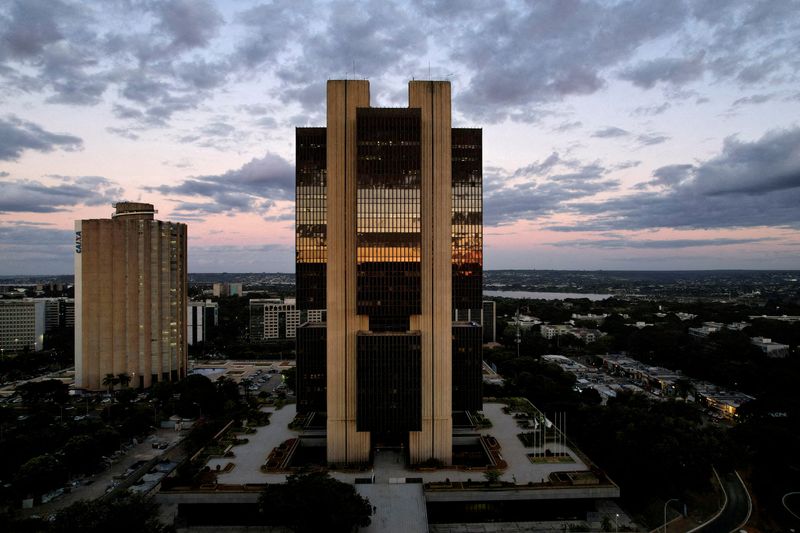BRASILIA (Reuters) - Brazil's public sector posted a larger-than-expected deficit in August, central bank data showed on Monday, driven by a mismatch between central government revenues and expenditures.
The primary deficit, which excludes interest payments, reached 21.4 billion reais ($3.9 billion) for the month, surpassing the 20.8 billion reais deficit forecast by economists polled by Reuters.
The result was mainly due to a 22.3 billion reais deficit from the central government, while regional governments posted a surplus of 435 million reais, and state-owned enterprises recorded a surplus of 469 million reais.
Over the past 12 months, the public sector primary deficit reached 2.26% of gross domestic product.
For the central government alone, the shortfall was 2.34% of GDP, still far from the government’s target of balancing the budget this year, which allows for a tolerance of 0.25% of GDP either side.
Government debt as a share of GDP edged up slightly to 78.5% in August from 78.4% the previous month, the central bank said, primarily due to 69 billion reais in interest payments.
Facing increasing inflationary pressures, the central bank began a tightening cycle earlier this month, delivering a 25 basis point hike to 10.75%.
Policymakers left the door open for further hikes, which economists expect to be larger going forward, raising the cost of Brazil’s already heavy debt load.

Last week, ratings agency Fitch said Brazil's gross debt-to-GDP ratio is expected to rise to 77.8% this year, up from 74.4% last year, widening the gap with countries holding the same credit rating as Brazil, with a median of 55%.
($1 = 5.4341 reais)